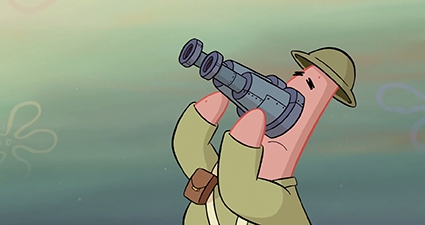Assessing the Real Game-Changers: Russia or China?
OP-ed
Western mainstream media is quite often full of news on how Russia is changing the post-cold war order in the European continent. Georgia, Ukraine, Moldova in Eurasia, Syria in the Middle East – those are major theaters of active Russian involvement. Moreover, according to western media reports, Russian influence is constantly popping up here and there across the European continent.
Indeed, misinterpreting Russian actions would be wrong, but the question which comes to mind analyzing daily news and reactions in the West is whether Russia is genuinely a fundamental problem for the EU and the US. Could it be a misconception on the part of western governments that they are so preoccupied with the Russian menace?
In fact, quite often in history, foundational changes in international relations have taken place away from the main headlines. The West is too focused on Russia, but the Russian resurgence, if you may call it so, is a fleeting phenomenon. The country does not possess as large resources as its Soviet predecessor and is losing positions in several of the former Soviet countries. A simple look at the map of Europe since the reunification of Germany shows how far back the Russian power has receded from the heart of Europe to the frontiers of Russia proper.
Indeed, it is important to differentiate between those powers which aspire and are capable of introducing a new global order and those which remain only nominally global and disrupt an existing order on a local level.
A bit of History
Take the example of Napoleon I, the all-powerful Emperor of France. Napoleon certainly tried to change the existing order in Europe. Austria and Prussia were crushed, while Russia and Britain were constrained. Nevertheless, politicians in St Petersburg and other capitals understood that Napoleon’s influence was fleeting. Indeed, the French grandeur was based on his military achievements, which were impossible to maintain in the longer term. The French power was simply too overstretched to remain victorious. The Russians truly panicked when Napoleon entered their territory and was on his way to Moscow. Still, high-level politicians knew well that it was not France but Great Britain which would be Russia’s arch-enemy in the long run. Trade, dominance in the seas, as well as British presence in India: those were far more powerful long-running trends which were set to influence international relations in the 19th century and far beyond. Russia knew this well.
Almost 130 years later, Hitler’s invasion of Europe and especially the Soviet Union was an important event, but for Stalin and Great Britain, the German power was too thin to dominate the entire continent. Everything depended too much on Hitler and, as in the case of Napoleon, a simple break from military victories could have led to a serious blowback for the Nazi regime. For Stalin, it was Great Britain and the US (although the latter got to play a larger role in his calculus at the end of the WWII) which would share the world between themselves.
No wonder, then, that Stalin was already talking about post-WWII order with the British Ambassador in Moscow in late 1941-early 1942 when the Germans failed to conquer Moscow.
Back to Modern Russia
Like Napoleon and Hitler, modern Russia is trying to influence the existing security order in Europe. But let us be more precise and state that Russian influence nowadays across the Eurasian landmass is more of a nuance to the US and the EU and the politicians in grand strategic terms. Although it is fashionable among analysts to charter the dawn of the new Cold War and the overall Russian resurgence, underneath this perceived threat there is a much more powerful China which truly, through its size and economy, will be challenging the US-led world order.
Therefore, I believe it is expedient to point out that in geopolitics and international relations, politicians pay more attention to immediate threats rather than to those invisible far-reaching ones. Putin is portrayed as the biggest threat to Europe and the US and at times one could truly believe that, considering the number of articles and statements written by western analysts and politicians. Churchill, Stalin, Roosevelt or Alexander I of Russia would have easily understood who the potential game-changer is in the 21st century, had they lived today.
Thus, this piece aims to wake up the analysts in the West and in many other countries to be more precise in their assessments of the world processes and real or unreal threats emanating from Russia to the existing world order.
Emil Avdaliani












